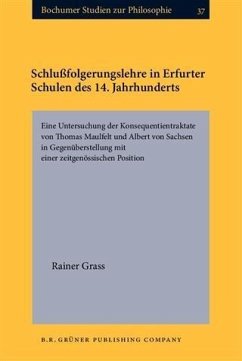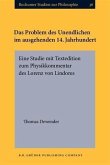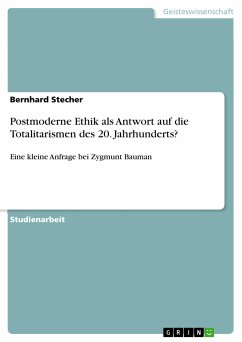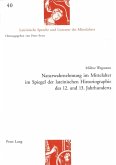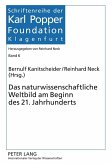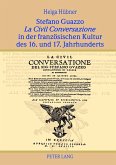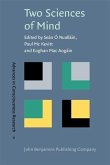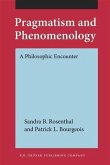As the title indicates the author presents a contemporary theory of consequence. In so doing he establishes a terminology that enables a description, interpretation and evaluation of medieval theory independently of medieval vocabulary.In the interest of better understanding the medieval writers the author puts himself in the position of the medieval scholar in Erfurt. The reader learns about the Erfurt schools and the controversal debate on the so-called modi significandi, using only texts that are known to have been available in Erfurt in the first half of the 14th century.The two tracts, a short epitome of Thomas Maulfelt and a comprehensive volume of Albert of Saxony represent the two most common tracts of this discipline, and are discussed on the basis of questions arising in the introduction. New conclusions can be reached about the scope and the goal of medieval consequence theory which is an original accomplishment of the high Middle Ages and its place in the history of logic.Der Ankundigung im Titel gehorchend stellt der Autor eine zeitgenossische Theorie zu Schlufolgerung dar. Somit wird eine Terminologie erstellt, in der - unabhangig von der Fachsprache des Mittelalters - die verschiedenen Ausfuhrungen zur Schlufolgerungslehre des Spatmittelalters beschreiben, interpretiert und bewertet werden konnen.Um die mittelalterlichen Autoren Thomas Maulfelt und Albert von Sachsen zu verstehen, versetzt sich der Autor in die Perspektive eines Scholars im Erfurt der Mitte des 14. Jahrhunderts. Der Leser wird uber die Schulsituation in Erfurt unterrichtet, er erfahrt von der hitzigen Debatte um die modi significandi und blickt zur weiteren Erlauterung lediglich in solche Schriften, deren Vorkommen fur die Mitte des 14. Jahrhunderts in Erfurt belegbar sind.Anhand von Fragestellungen, die sich aus dem Einleitungsteil ableiten, werden die zwei Traktate, die in Form, Inhalt und Umfang die zwei haufigsten Schrifttypen zur Schlufolgerungslehre reprasentieren, untersucht. So ergeben sich zur Anwendungreichweite, zur Zielsetzung dieser Disziplin, die eine originare Leistung des hohen Mittelalters ist, sowie zu ihrem Stellenwert in der Logikgeschichte neue Erkenntnisse.
Dieser Download kann aus rechtlichen Gründen nur mit Rechnungsadresse in A, B, BG, CY, CZ, D, DK, EW, E, FIN, F, GR, HR, H, IRL, I, LT, L, LR, M, NL, PL, P, R, S, SLO, SK ausgeliefert werden.

